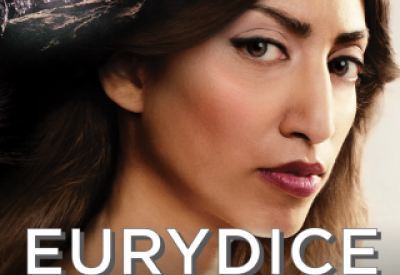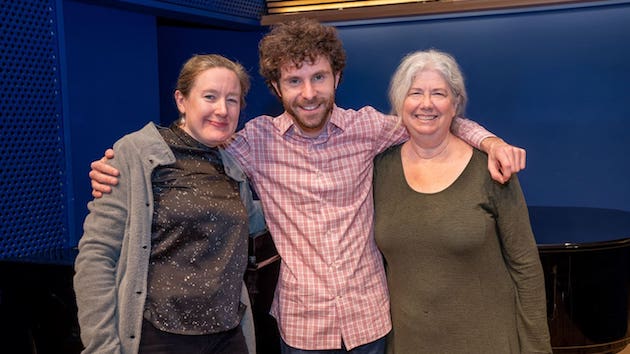
“I would say that my music is explosively tonal and by that, I mean it uses tonal harmonies but perhaps not in familiar ways. There’s an instability or an explosiveness to the way the harmonies behave.”
That’s composer/conductor/writer/pianist Matthew Aucoin, whose world premiere opera, Eurydice, will debut as part of Los Angeles Opera’s current season. (Numerous events are also revolving around the opera in the current festival, “Eurydice Found.”) With six performances from Feb. 1 through 23 at the Dorothy Chandler Pavilion — and with Aucoin on the podium — the opera has a libretto by Tony Award nominee and Pulitzer Prize finalist, playwright Sarah Ruhl, and is directed by Tony Award winner Mary Zimmerman.

If the opera’s title, Eurydice, sounds familiar, it’s also the name of Ruhl’s acclaimed play, which opened in 2003 and was a retelling of the Orpheus myth from his inamorata’s point of view and which The New York Times’ critic Charles Isherwood hailed as “Devastatingly lovely and just plain devastating.” For those unfamiliar with the original tale, the grieving musician, Orpheus, ventures into the underworld to retrieve his dead wife, Eurydice, and is instructed to “not look back,” which, of course, he does. That unheeded advice launched a surfeit of art over many centuries, including thousands of poems, films, operas, and ballets. But who’s counting?
Ruhl’s reimagining of the myth for a modern age brings the heroine out of the shadows — finally — and into the forefront of her own narrative. A kind of Alice in Wonderland type of Hades, complete with singing stones, the work explores relationships, communication, and love — including Eurydice’s ardor for both Orpheus and her late father — as well as a search for meaning in this life and beyond.
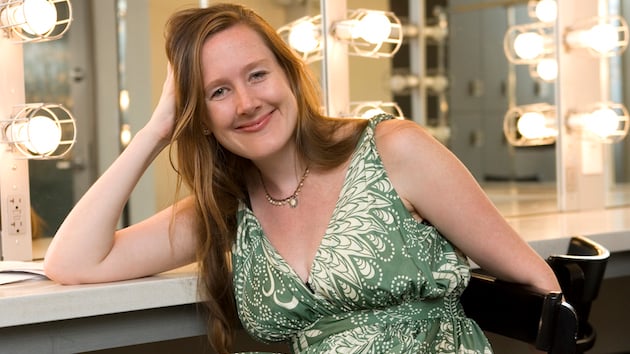
For Aucoin, who was born in 1990 and is co-artistic director of the newly-formed American Modern Opera Company (AMOC), the pairing with Ruhl, a first-time librettist, seemed a perfect fit. “In 2014 I wrote a piece called The Orphic Moment for countertenor Anthony Roth Costanzo,” said Aucoin. “That piece was a 17-minute distillation of what’s going through Orpheus’s mind in the few seconds before he turns around. I had a dark, twisted take on Orpheus’s psychology and I loved writing the piece so much that I knew I wanted to do more with the myth.
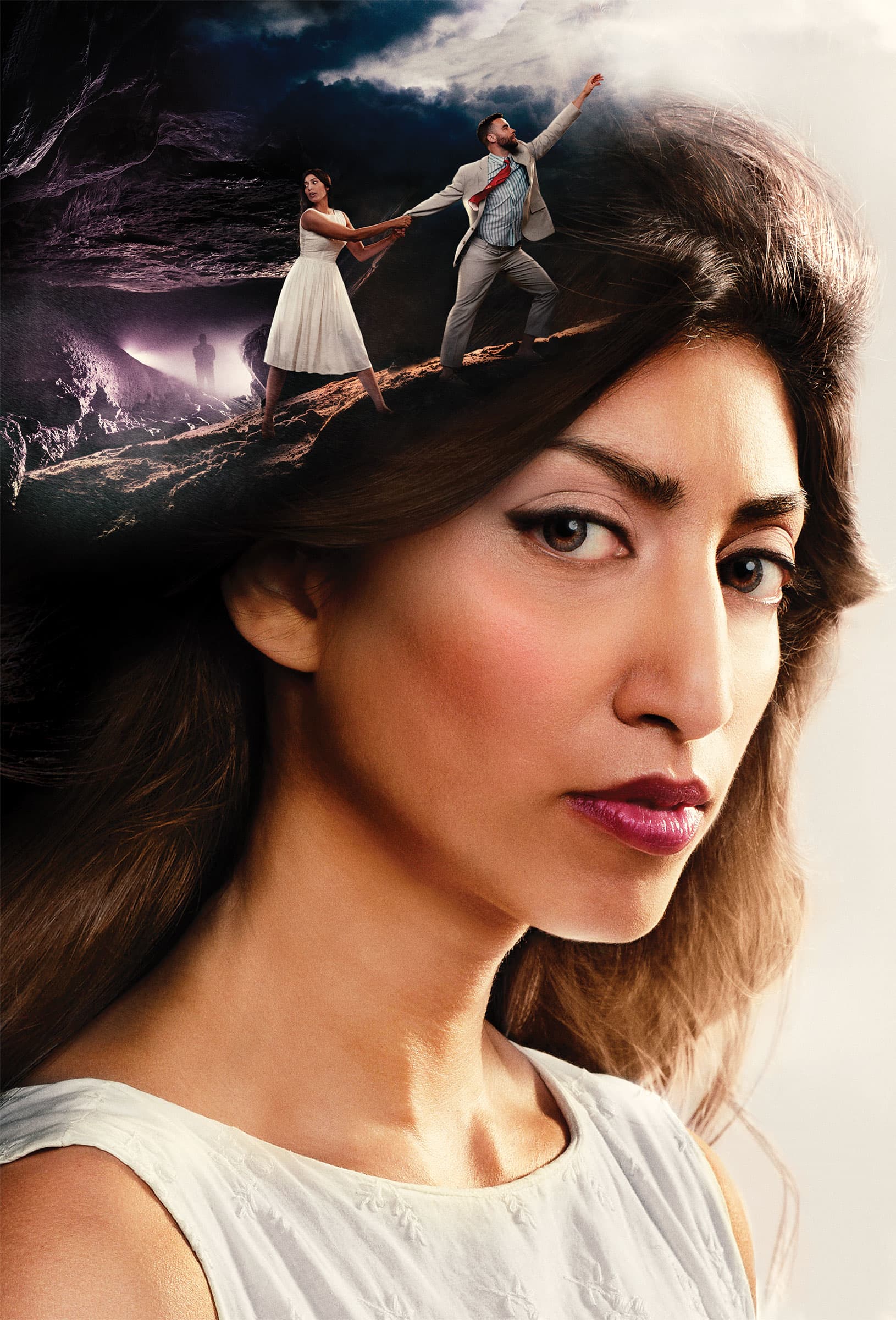
“The more I thought about it,” added the composer, “the more I felt it to be depressing and another male tortured artist story. I started casting around and a few people, including my sister Christine, mentioned Sarah’s work. I read her play and wept at how beautiful it was. We met up in late 2015, and at first I thought of doing something different with the story, but the more I spent time with it, I felt it was perfect and I started working on the piece in 2016, when I arrived at LA Opera as artist-in-residence.”
Ruhl explained that Lincoln Center’s André Bishop “was sort of the matchmaker. He knew that Matt wanted to work on a piece about Orpheus and Matt and I met and we decided to adapt the play, so we got to work. It does hew pretty closely to the original [as it’s] mostly a process of distillation and slight bits of versification. Anybody who has seen the play will recognize it.”
The process, Ruhl said, was remarkably seamless. “Matt’s ear is impeccable and his instincts are impeccable. Often, he would ask me to versify something and I would try and then he’d say, ‘Go back to the original.’ He would rhythmicize speech to me in an extraordinary way and there’s a naturalness in the speech pattern that he’s captured.”
A cocommission and coproduction with the Metropolitan Opera (it opens there in an upcoming season), Aucoin, who won a MacArthur Fellowship in 2018, said that Eurydice has brought out a new side of him as a composer. “My engagement with Sarah’s text has opened something up in me. I admire the emotional transparency of it. An actress who played Eurydice said to Sarah that there are no columns to hide behind — literally, there are none.
“But emotionally,” added Aucoin, “there are also no columns to hide behind. It’s quite open and quite naked. I hope that is present in the music, too. There’s a vulnerability and a sweetness to the music that has not been there in the past. A number of times while I was writing it, I would write a little section and then think, ‘Did I really just do that?’ It feels so vulnerable and that’s the thing about composing. You write it down and it’s not really yours anymore. You’ve created it. I’m glad I had the guts to stick with those moments.”
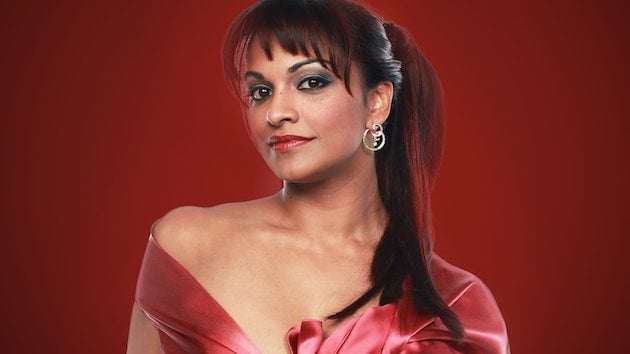
There are many such moments for the production’s titular character Eurydice, 40-year-old soprano Danielle de Niese, who was touted as “opera’s coolest soprano” by The New York Times Magazine in 2009. Born in Australia, she is of Sri Lankan, Dutch, and Scottish heritage, and after moving to L.A. in 1990 with her parents, de Niese developed her gifts at the Colburn School.
Making her LA Opera debut at 15, she bowed at the Metropolitan Opera as Barbarina alongside Renée Fleming, Bryn Terfel. and Cecilia Bartoli in Jonathan Miller’s 1998 production of The Marriage of Figaro. Vaulting to international stardom as Cleopatra in Sir David McVicar’s 2005 production of Handel’s Giulio Cesare, the soprano also made her role debut as Euridice at the Met in 2008 in Mark Morris’s production of Gluck’s 18th-century masterpiece, Orfeo ed Euridice.
The soprano, never at a loss for words, discussed the two operas: “Obviously, I love the Gluck as well as Matt’s work. But they’re so different in that Eurydice has much more of a proactive voice. How can I break it down? In the Gluck sense, Euridice is reactive — she reacts to everything around her and she has a sad response. But nobody knows the story from Eurydice’s point of view. She has [been] infused [with] a whole life and story and outlook and perspective — and a back story that’s part fictional — but so rich. It gives flesh to a character.
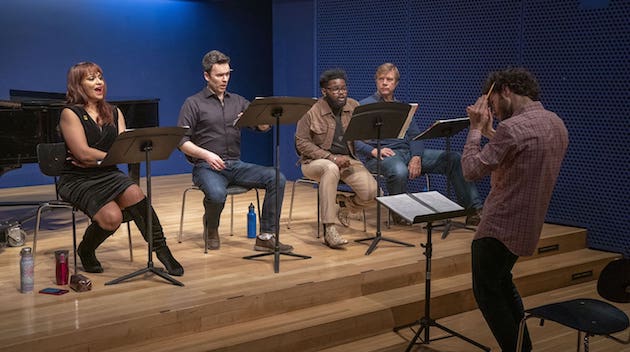
“Even if I went back to the Gluck, I could fill in things,” de Niese noted. “But Matt’s opera is ahead of its time with the #MeToo movement, gender rights, all of these movements and all this perspective from Eurydice’s point of view. It is the act of giving a voice to someone who has only been a byproduct of Orpheus [sung in Aucoin’s production by baritone Joshua Hopkins]. What I found by having this very rich backstory, she’s given a strong voice and perspective, even if she’s not always a strong person herself. I love it.”
The soprano also pointed out that in the new opera, when her character dies, she has no idea what has happened to her and comes into a place where her memory has been “rained upon and she can’t quite piece together how she fell. This loss of memory means she has to start again down in Hades,” adding that “in Eurydice, you have a young, very, very alive and curious, inquisitive personality. She’s very bookish and her language is words; Orpheus’ language is music and they can be both at odds with one another and complement one another.
“The interesting thing for me,” de Niese continued, “is that Eurydice is caught between two people — a kind of youthful, almost I could say, a lopsided love — in that music takes a front seat to Orpheus’s being in a way she accepts — and the love of her father [sung by baritone Rodney Gilfry], because when she dies, she meets him. I was talking about it with Sarah and Mary and I feel she is extremely nourished by the relationship with her father in a way she’s not nourished with Orpheus.”
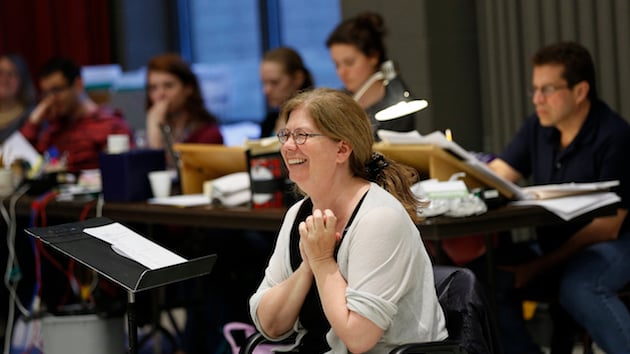
Chicago-based director Zimmerman, whose work was last seen at the Music Center in her ravishing 2000 production of Metamorphosis at the Mark Taper Forum — and was staged in and around a pool of life-giving, transforming water —said that she had been thinking about the myth from the feminist perspective, and, indeed, as a girl, had been an avid reader of myths and folk tales.
“I think the myth of Orpheus endures because it has that moment of the near miss — where if only he had patience and did not turn, everything would be redeemed. But he doesn’t and everything is irretrievably lost. Through inattentiveness, you let go of that balloon of childhood and time moves only in one direction — and loss exists.
“It’s a very deep moment with us,” adds Zimmerman, who was awarded a MacArthur Fellowship in 1998 and made her debut at New York’s Metropolitan Opera in 2007, directing Lucia di Lammermoor (which she remounted at Milan’s La Scala in 2014).
“Look at Romeo and Juliet. He thinks she’s dead and with this near miss, she kills herself. Sarah has worked on that near miss and she sort of triples it. It doesn’t just happen between Orpheus and Eurydice, but also with her and her father. She repeats it between different relationships in the opera, which makes it really profound.”
Zimmerman, a professor at Northwestern University and a member of the Lookingglass Theatre Company, and who recently celebrated 25 years as an artistic associate of Chicago’s Goodman Theatre, came onto the project when the Met’s Peter Gelb called her. And although she hadn’t worked with Aucoin before, she signed on and brought along her design team, including Daniel Ostling, who has designed more than 29 productions with Zimmerman, with Metamorphosis one of his many credits.
She explained that the sets are rather minimal, “but,” added Zimmerman, “I hope beautiful. It’s always a challenge when you have the above world and the underworld, but we figured out a way of doing that. I also want to emphasize that the play that formed the libretto — and given the nature of the story, a tragedy — it’s actually quite witty and funny at times in unexpected ways. This came from a theatrical imagination so that gives it a kind of slightly different structure.”
But tragedy being an operatic staple, Aucoin’s first opera Crossing, was given its West Coast premiere in 2018 as an LA Opera coproduction with the Wallis as part of its “Off Grand” series. Set to the composer’s own text based on the diaries of Walt Whitman's work as a Civil War nurse, the trauma-infused opera was praised by The New York Times’ Anthony Tommasini as a “taut, teeming, and inspired work.”
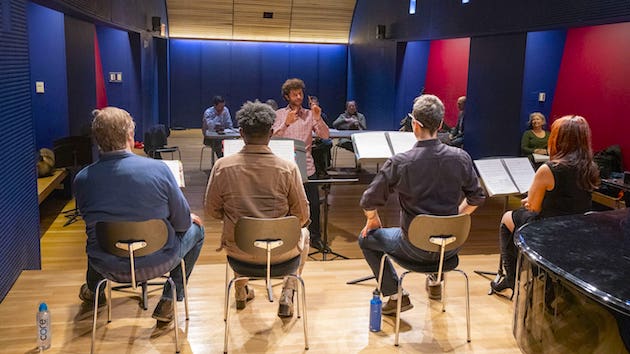
Aucoin recalled an early workshop of Eurydice where the concept of tragedy also arose. “At one point,” said Aucoin, “Sarah and I did a public conversation about the piece and someone asked, ‘How are you empowering Eurydice?’ as if it were assumed that she would be. I thought about this and realized that I prefer the word ‘humanize’ to the word ‘empower.’ Every tragedy is a story of disempowerment. Every tragic hero loses their power at the end.
“We’re not saying, ‘You go, girl,’ because she’s fully in control. We’re showing a three-dimensional, brilliant, complex human being who’s also deeply flawed, and that’s what feels so rewarding to me. We’re transferring both the agency and the complexity to Eurydice, which means also the flaws. It’s a very rich portrait of a person who does not resemble the Eurydice of the myth.”
With Aucoin also set to wield his baton for the world premiere — he previously conducted LA Opera productions of Rigoletto (2018) and Akhnaten (2016) and with this marking the end of his official residency with the organization — the composer said he was “looking for excuses to working together again in the future.”
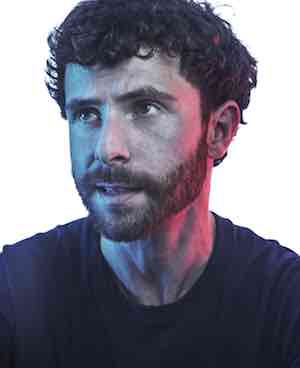
“I feel lucky,” he added, “because when [President and CEO] Christopher Koelsch came to Boston to see Crossing in 2015, we had dinner and it was one of those dinners when you really want to work with someone far into the future. He had this open mind and wanted to devise a position that hadn’t existed before, so I could make use of the things I do — vocal coaching, giving talks, conducting. But composing is the core of it, and it’s been the core of the residency, too.”
With Aucoin having been dubbed, “Opera’s Great 25-Year-Old Hope,” by The New York Times Magazine, the question of burnout or being overexposed begged addressing. “It’s always a risk,” noted Aucoin, “but for me the most important thing is that when I look in the mirror I’m a composer. That’s the heart of it. I would rather be thought of just as a composer than X, Y, Z and A, B, C. It took me a while because it felt like a toss-up.
“Was I going to become the kind of conductor who mostly performs standard repertory or pursue poetry or writing in some other way? Composing has always been closer to my heart. It makes life simpler and this is the thing I’m going to prioritize. Composing,” he admitted, “is always going to win.”


